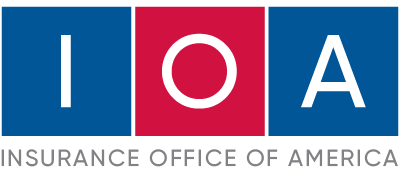 As professionals, you want to excel in your line of business. You never want to be put in a position where you feel your organization's structure or culture is preventing you from excellence. Unfortunately, insurance producers working in a restrictive, traditional corporate environment may feel pigeon-holed by their inability to become partners with clients due to quotas or business demands.
As professionals, you want to excel in your line of business. You never want to be put in a position where you feel your organization's structure or culture is preventing you from excellence. Unfortunately, insurance producers working in a restrictive, traditional corporate environment may feel pigeon-holed by their inability to become partners with clients due to quotas or business demands.
Becoming a trusted adviser or a consultative partner to your clients can be the difference between success and failure, as well as fulfillment and disappointment. Clients need to understand and trust their insurance producer just as they would their lawyer or accountant due to the large impact the producer could have on the business.
An entrepreneurial or lifestyle model empowers producers to spend the time needed with each client to serve as partners in overall business goals. On the other hand, the profit-focused business in a traditional corporate model tends to inhibit producers and forces them to act more like salesmen by converting clients and then managing them unequally based on the company's evaluation of their value.
In Ernst & Young's 2014 Americas Consumer Insurance Survey: Reimagining Customer Relationships, global consumers expressed greater trust in banks, online shopping sites, supermarkets, and car manufacturers than in insurers. From the study:
Consumers want more frequent, meaningful, and personalized communications.
A full 57% of global insurance consumers, across all product types, prefer to hear from their providers at least semi-annually. Today, only 47% receive that level of contact. In an era when many consumers feel bombarded by push communications and suffer from information overload, it is particularly interesting for survey respondents to express a desire for more communications.
For the insurance industyr producer, this kind of response is problematic under a purely sales-driven model. Models that support a richer communications experience are becoming increasingly more desired by consumers and the producers who serve them. The entreprenurial model accomplishes the needs of both.
An Entrepreneurial Model Exemplified
Insurance Office of America (IOA) is one example of the entrepreneurial model. IOA empowers producers to build long-lasting partnerships with clients by providing the appropriate tools and resources that allow them to succeed. In addition, producers are encouraged to promote themselves just as much as they are encouraged to promote the brand. Creating a culture relying heavily on the individuals who make up the company truly empowers the producers to become trusted advisers for their clients.
Moreover, entrepreneurial models like IOA give insurance producers the ability to earn equity and ownership. Providing the opportunity to be an owner within the business, which most corporate models do not allow, enables IOA's producers to invest in their clients as they would any other aspect of the business.
Senior partners also have personal investments in seeing the organization succeed. One of those more senior partners, Suzanne Purnell, comments,"IOA is about people, and they really are a family."
If you are interested in investing in yourself, your clients, and your business, an entrepreneurial model may be right for you. Watch this video from IOA highlighting the difference in structure between an entrepreneurial model and a traditional, corporate model for more information. Choose to be a trusted adviser and not just an insurance salesman.

